
The Arts
The Arts bring many opportunities for pupils to develop their creative talents.
The Art School, Design & Technology Centre (Mill) and the QEII Theatre are open for recreational use, with a member of staff available to supervise. Pupils are welcome to use the facilities for their own projects, whether privately or academically motivated.
ARTS ON THE CURRICULUM
In their first two terms at Winchester, pupils explore the range of arts available at the school. In Art, this includes the essential disciplines of painting, drawing and printmaking. This enables them to make an informed choice about whether they wish to undertake a GCSE course in Art.
Design & Technology is an excellent option for pupils of a technical or practical mindset. Pupils solve and realise solutions to engineering, architectural and user-centred design problems.
Winchester does not offer curricular Drama and therefore the appetite for theatre is all the more passionate. Pupils may choose to prepare for LAMDA (London Academy of Music and Dramatic Art) grade exams with visiting professionals.
CREATIVE CHOICES
Pupils can focus on a specific media or theatrical specialism, training to a high standard in:
Abstract Painting, Acting, Architectural Modelling, Carpentry, Ceramics, Creative Theatre, Technology, Directing, Drawing, Etching, Fashion Design, Film Installations, Painting, Printmaking, Sculpture and Silversmithing.
In addition, they can choose from the wide range of arts clubs, activities and societies.
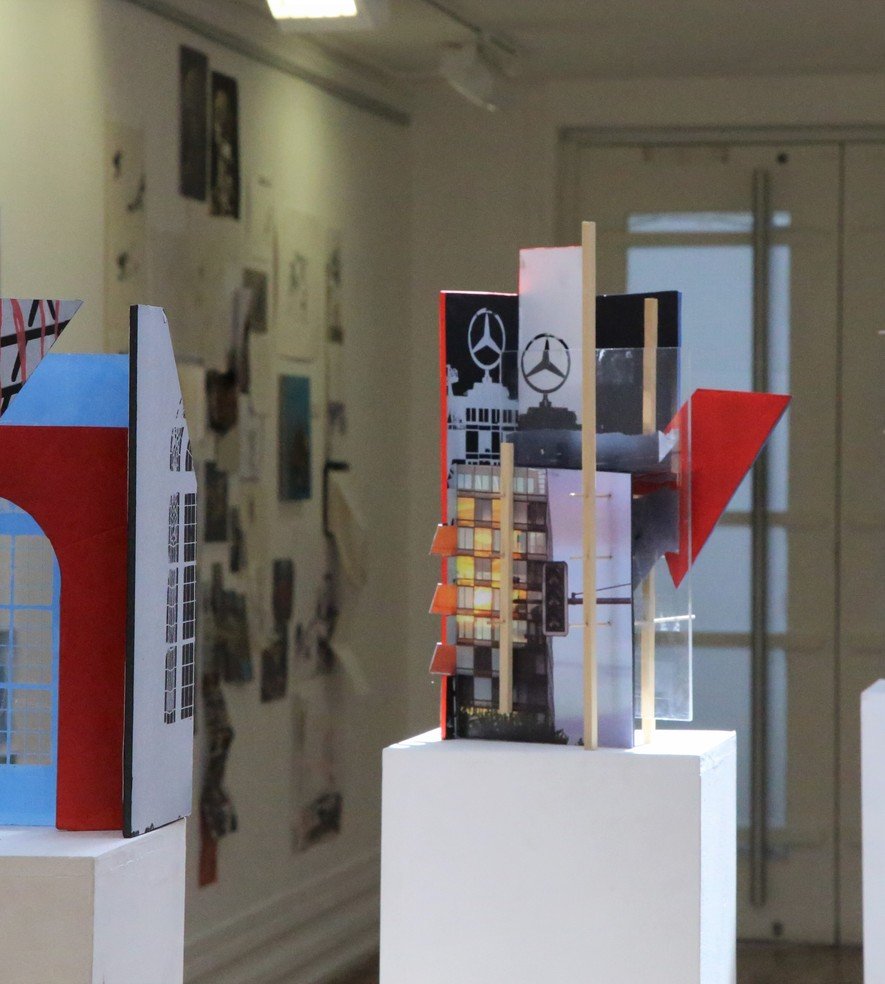
INSPIRING FACILITIES
Our pupils inhabit inspirational natural and built environments. This is complemented by the heritage resources in the Treasury, as well as the school’s collections of paintings and rare prints. These collections have inspired generations of Wykehamists including, more recently, a classicist with a passion for fashion design. His textile studies benefitted from direct access to our casts from the British Museum’s Parthenon marbles.
Pupils of the Art School enjoy large, well-equipped studio spaces, divided into specialist areas of paint, print and sculpture. The conversion of the school's 1870s romantic neo-mediaeval sanatorium has provided us with a spacious, well-lit destination for creative students. The Art School Library contains over 2,000 books, DVDs and magazines covering all aspects of the fine and decorative arts, and architecture. Pupils may borrow a variety of equipment for film and photography, and objects for still-life drawing.
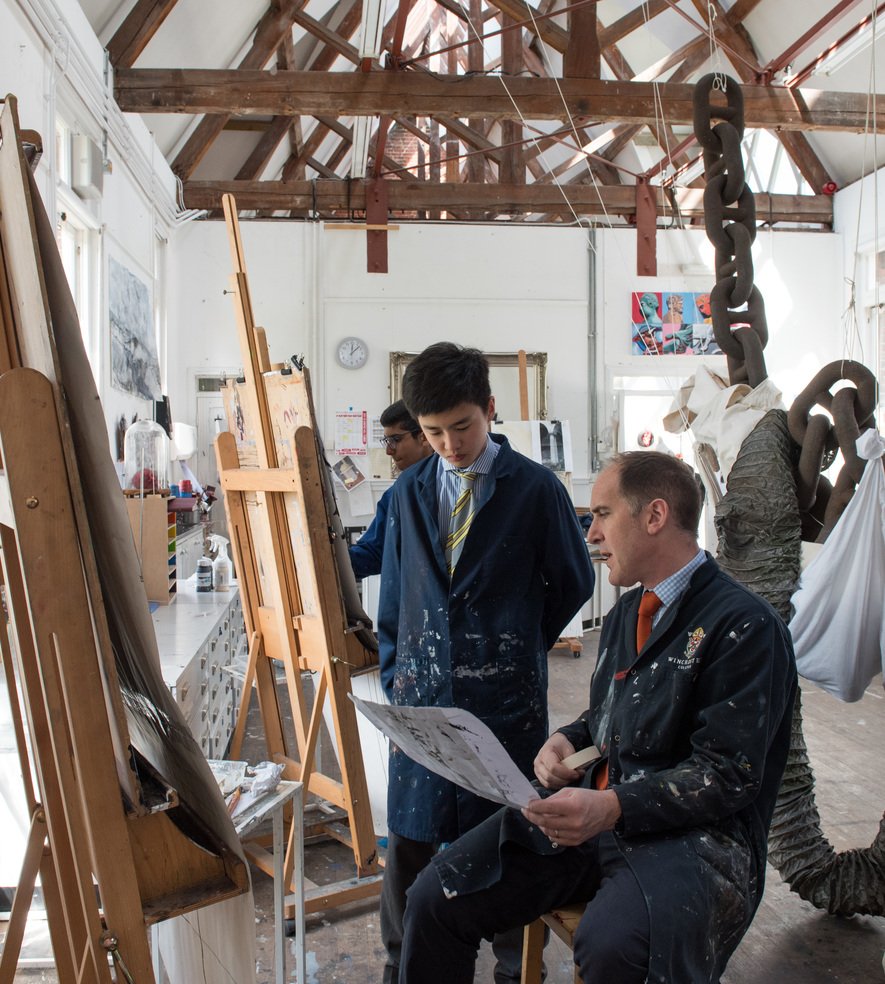
TECHNOLOGICALLY ADVANCED
Mill, named after the wood workshop previously located in the Old Mill by New Hall, gives pupils the opportunity to develop practical, spatial and intuitive intelligence. Pupils learn to solve challenging problems through creativity and the realisation of innovative ideas.
Purpose-built in 1936, the centre is equipped with a comprehensive range of traditional and high-tech machinery, from wood-turning to 3D printing. The open workshop is complemented by a graphics studio, an electronics lab and forty computers packed with professional software.
Pupils have extensive access to the centre, to experiment and apply their knowledge under the supervision of highly qualified staff.
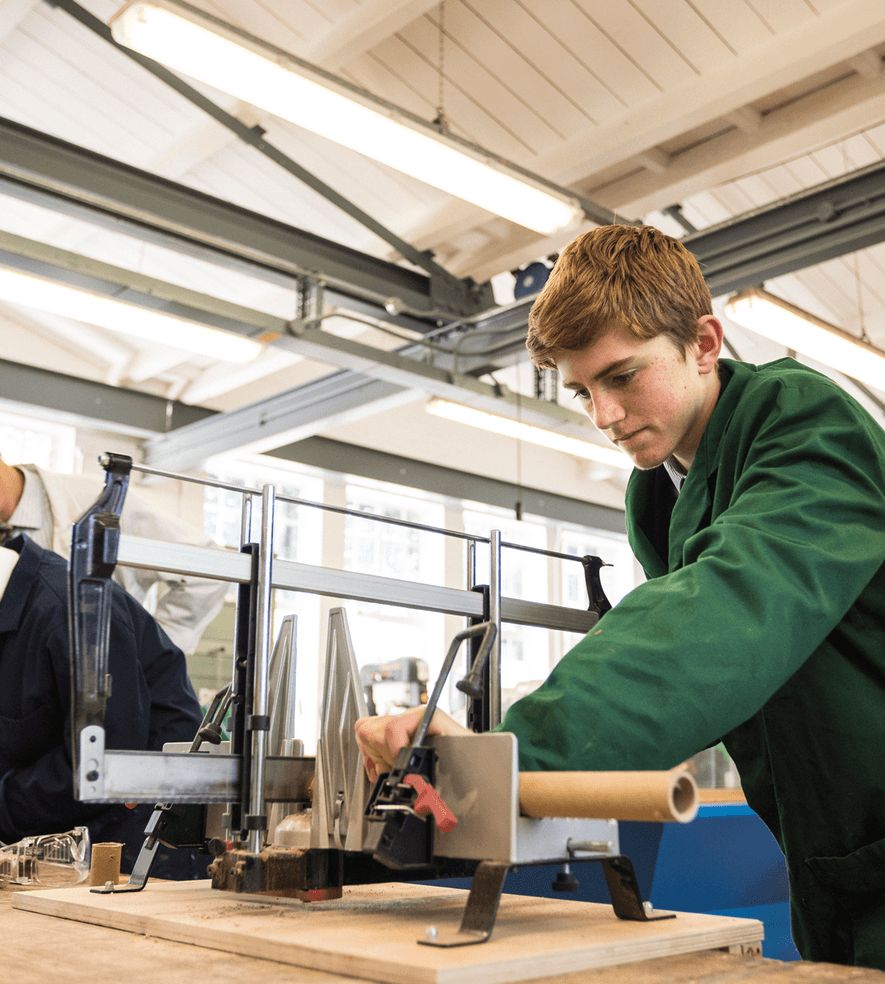
SPACE TO PERFORM
The QEII theatre, opened by Her Majesty the Queen in 1982, and refurbished in 2021, is the home of our dramatic endeavour. It has a proscenium stage, an auditorium of 240 seats and state-of-the art digital lighting and sound systems. It is staffed by a theatre manager, a wardrobe manager, and members of the drama department.
Many pupils are keen to contribute backstage in stage management, helping with the building of sets, rigging lights, sound engineering, and selecting costumes. The development of skills, such as teamwork and time-management, is a crucial part of the dramatic process, and we encourage this further through clubs and a programme of drama workshops, often involving visiting practitioners. We regularly participate in the National Theatre New Views Scriptwriting programme and have an excellent record in LAMDA examinations (in acting, reading for performance or public speaking).
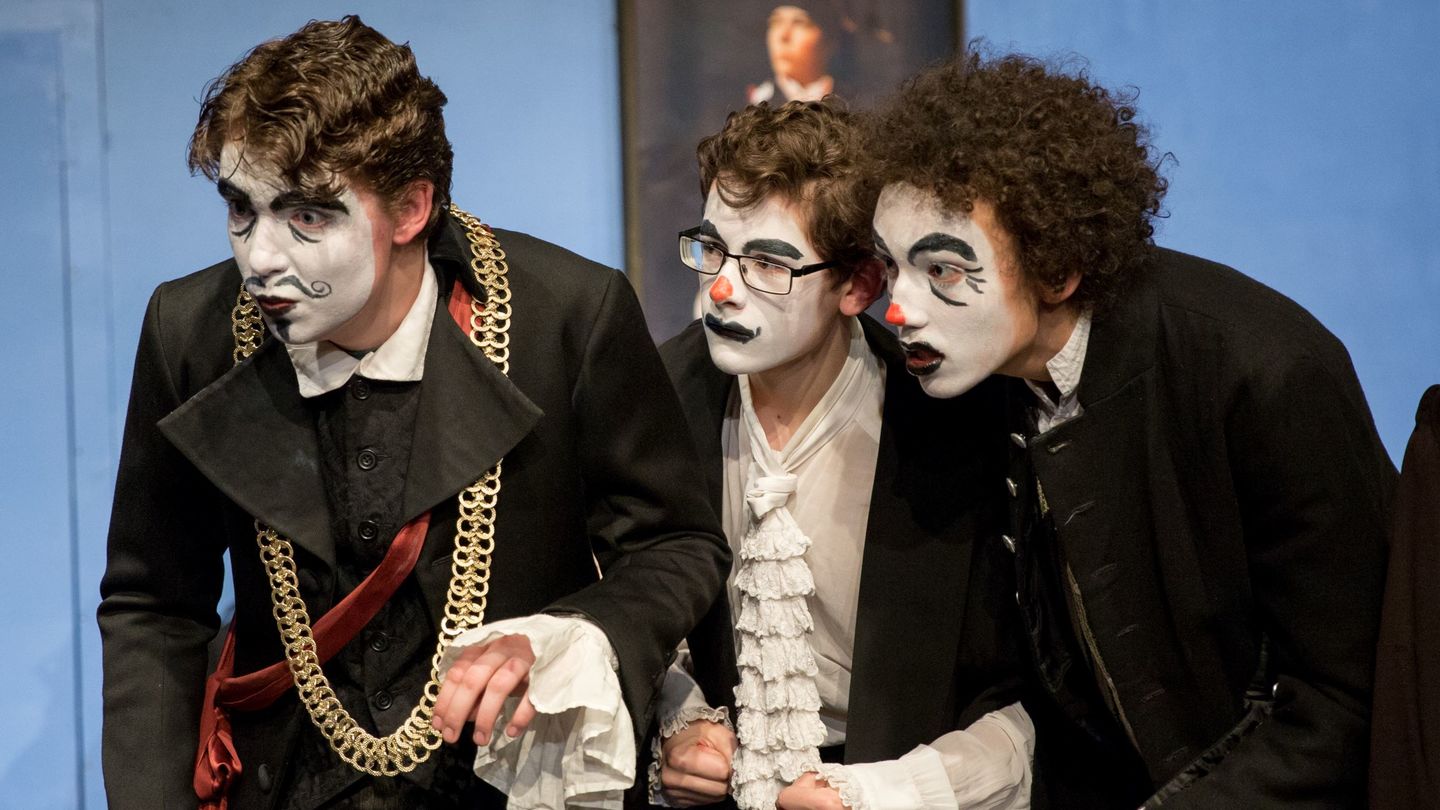
COMPETITIONS
Competitions provide opportunities for all and promote a healthy competitive spirit. Established by the former pupils of Graham Drew, Director of Art School 1958-1980, The Drew Travel Award provides financial assistance to pupils who wish to visit areas of cultural importance. It normally involves pairs of Wykehamists painting, sketching or taking photographs to record their travels. They then submit a written journal and present an exhibition of their work.
The Drew Jug Competition is an annual inter-house contest involving all the pupils and Housemasters in the preparation of a creative visual statement. A professional artist is invited to adjudicate. The much-coveted Silver Jug is used by the winning house when dining. The artwork is then installed in the house.
The Ingenuity Challenge is another opportunity for house collaboration. Pupils work as a team to solve a design or engineering-based problem with a focus on innovation and functional solutions. The Challenge is supported by the Taylor-Young Fund.
PRODUCTIONS
Each year, pupils participate in around seven to ten theatrical productions. A school play takes place in each of the first two terms, often in collaboration with local schools, St Swithun’s or Peter Symonds College. Each house presents a play every three years.
Plays directed by senior pupils are a longstanding tradition, as is a studiedly diverse repertoire. The Junior Drama Festival at Christmas sees all first years tread the boards in a thirty-minute play directed by fourth years.
As part of the Community Service programme, pupils entertain residential homes with songs and sketches or work with primary school pupils to develop their drama skills and realise a production. We have a close partnership with Blue Apple Theatre Company and take every opportunity to share our dramatic talent with the wider community. We recently collaborated with St Swithun’s on the staging of Fiddler on the Roof at the Theatre Royal, Winchester in March 2019.
CLUBS AND SOCIETIES FOR THE ARTS
Various clubs, societies and activities provide multiple opportunities for creative endeavour, whether in Art, Design, Engineering or Drama.
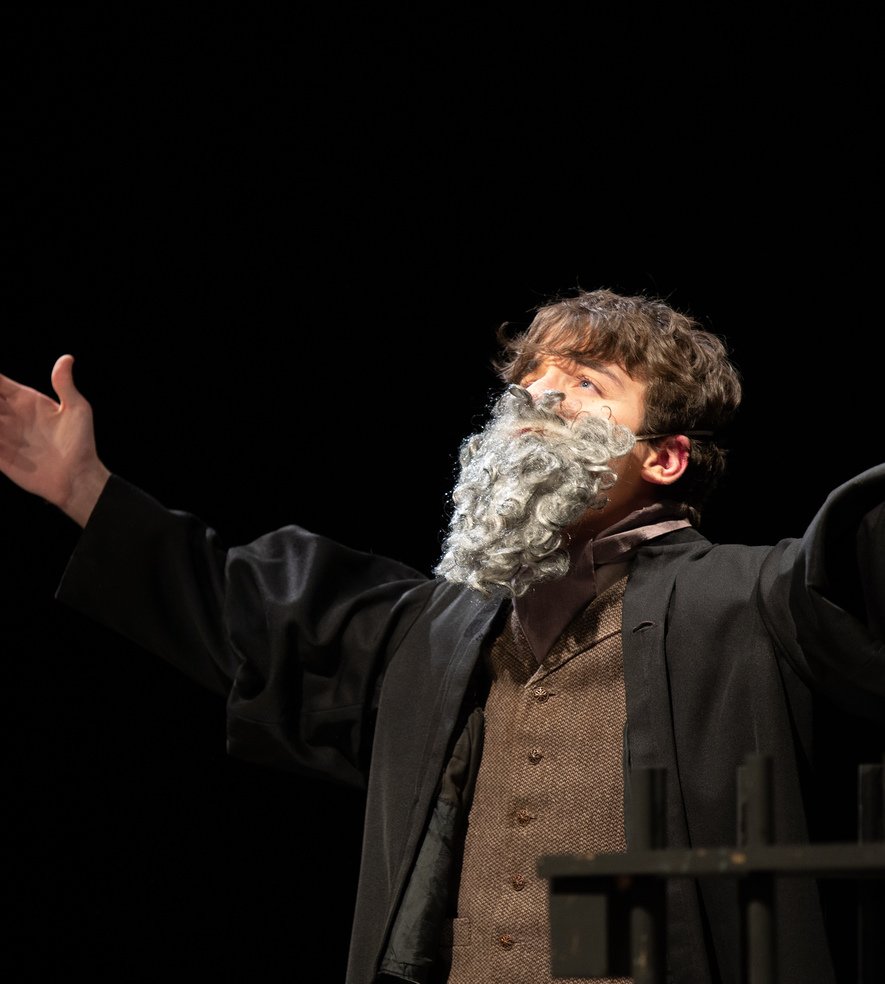
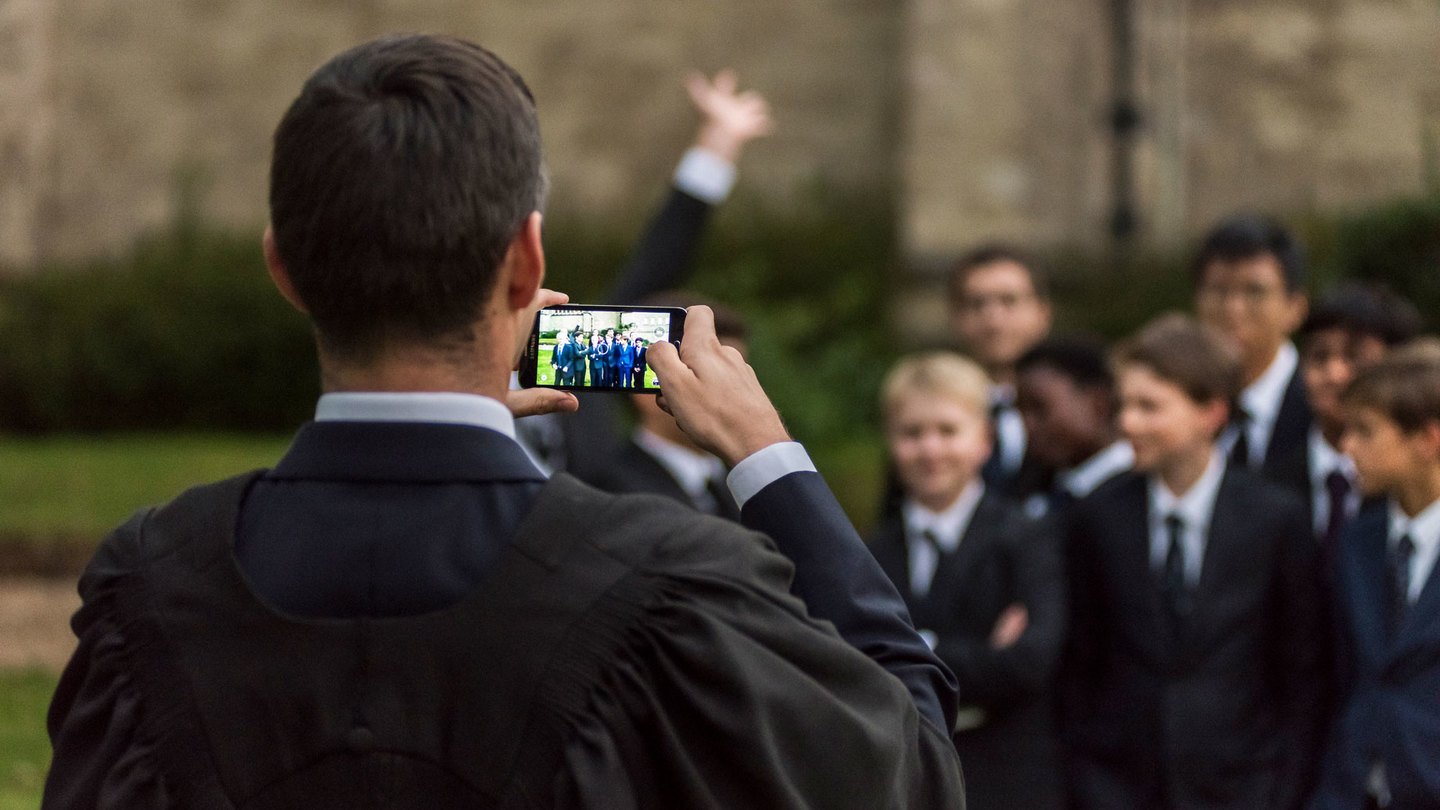
“The breakthrough moment where boys realise the potential for a project is quite a privilege to witness.”


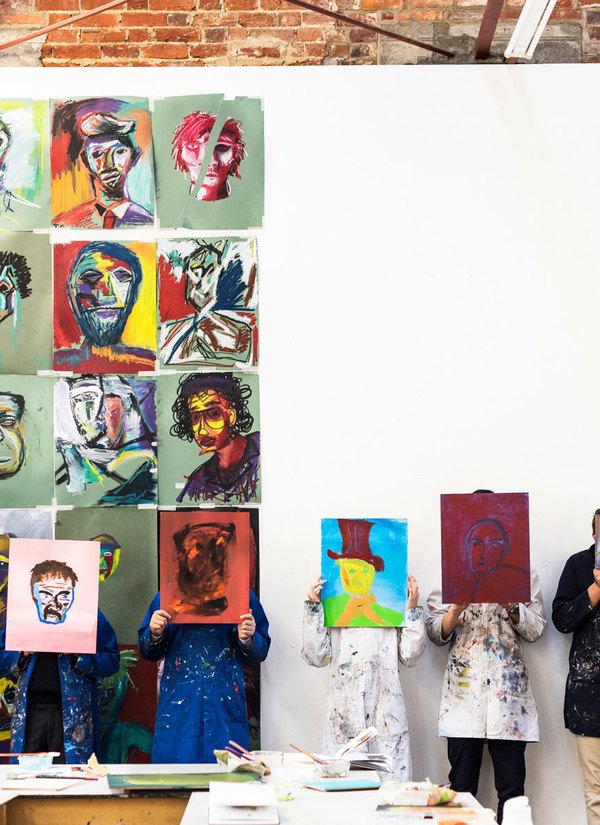
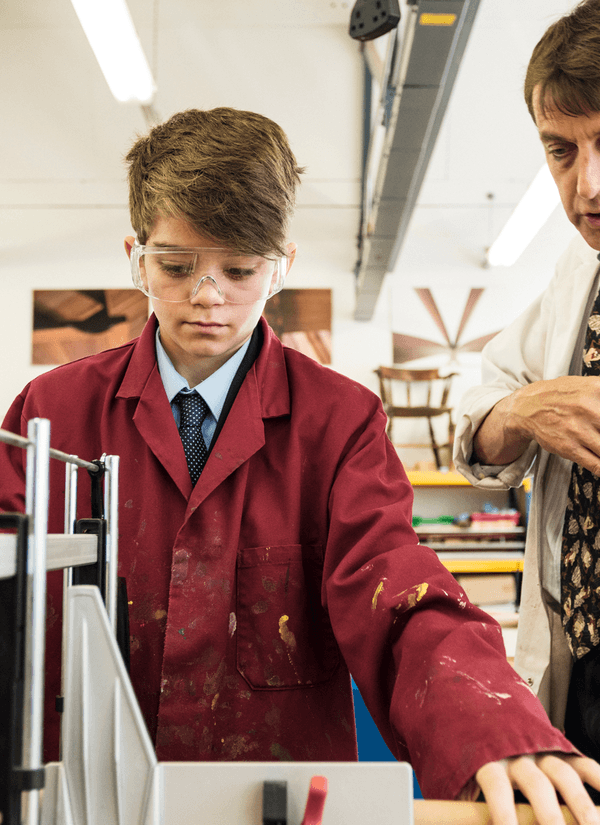
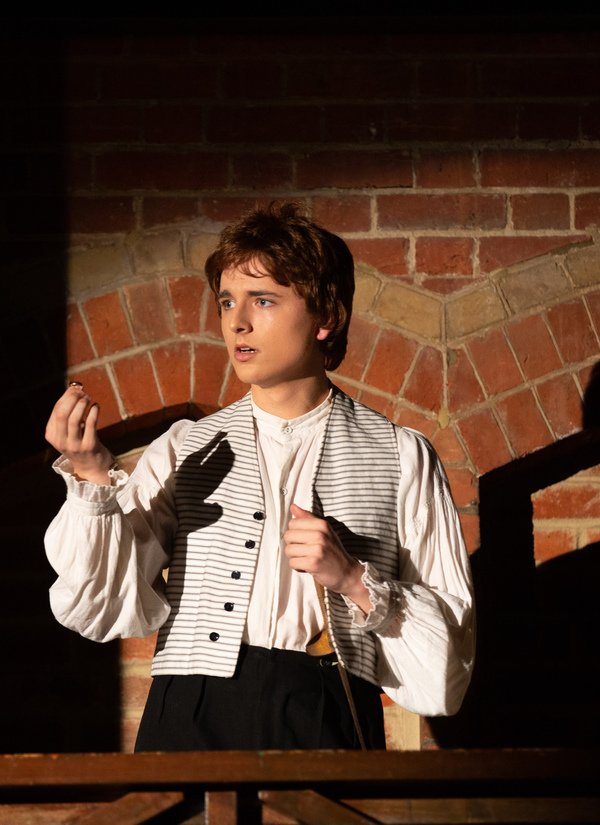
 Back to Learning
Back to Learning